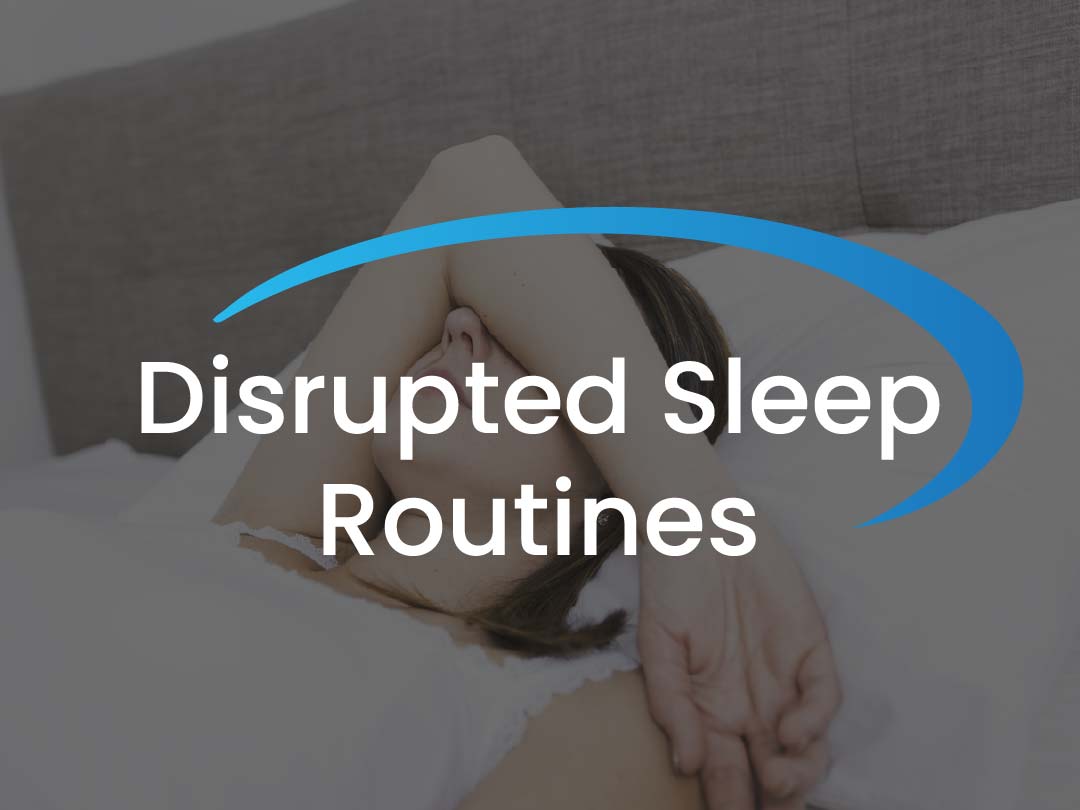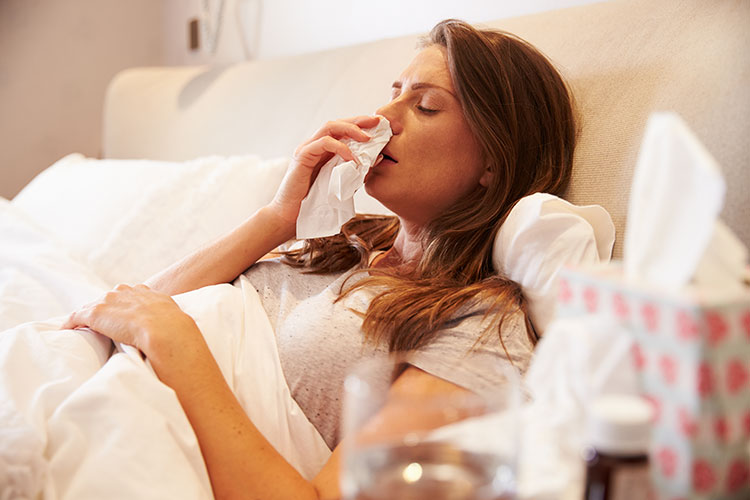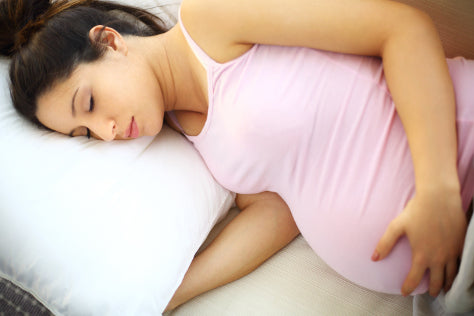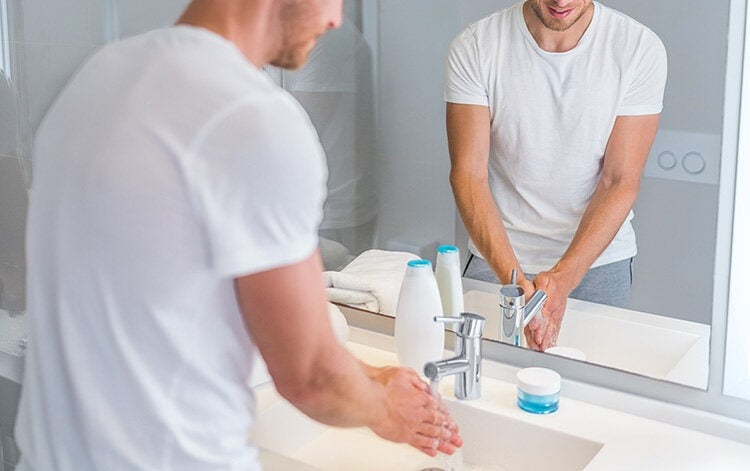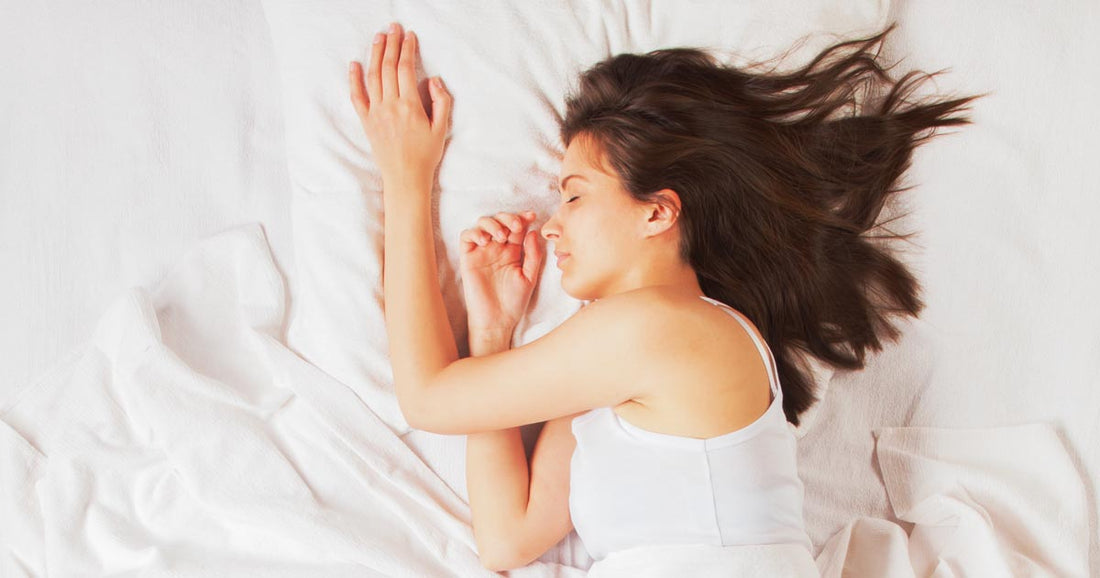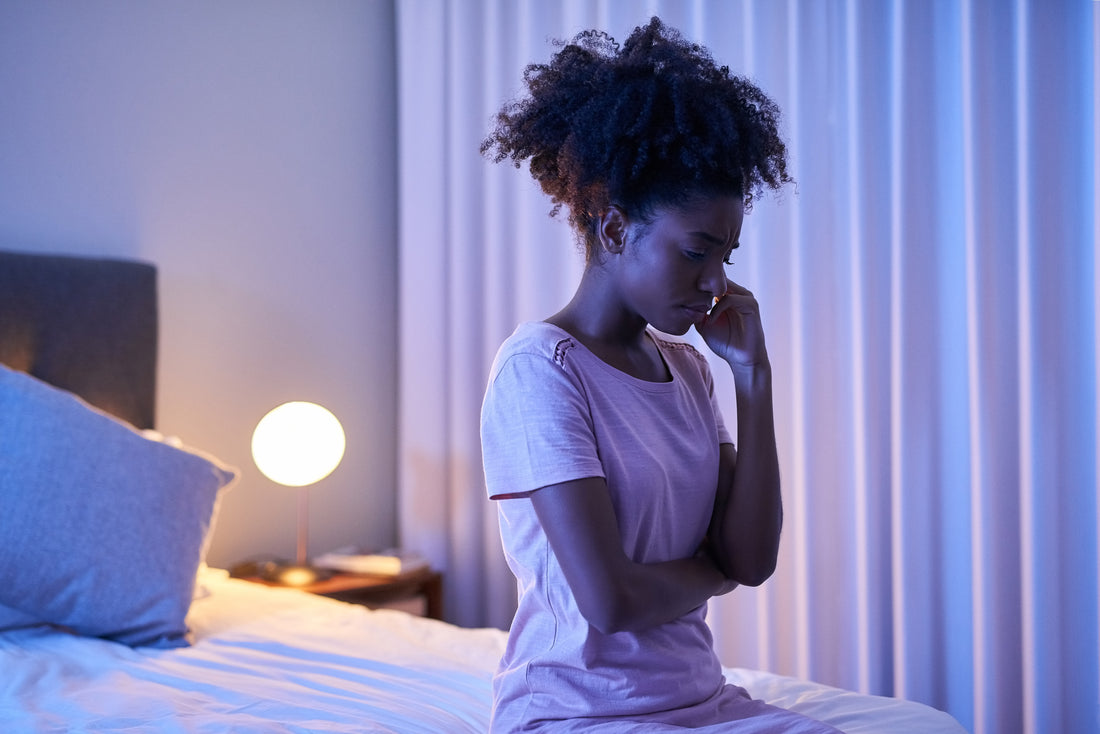News
Travelling with a CPAP Machine
Planning summer travel with your CPAP machine doesn't have to be stressful with proper preparation. This essential guide covers five key strategies: checking your equipment for wear and tear before departure, creating a comprehensive packing checklist, always keeping your CPAP in carry-on luggage, considering a travel-sized machine for frequent travelers, and maintaining your therapy routine while away. Proper planning ensures you'll sleep well and enjoy your vacation to the fullest.
Learn moreGet your CPAP Ready for Summer
Hot summer weather can negatively impact sleep apnea and CPAP therapy effectiveness, making seasonal adjustments essential for quality rest. This guide covers four crucial summer preparation steps: lowering humidifier settings to prevent condensation buildup, maintaining cool bedroom temperatures with air conditioning, inspecting and replacing worn CPAP parts before peak season, and keeping windows closed to avoid pollen and allergens that can worsen sleep apnea symptoms.
Learn moreSleep Deprivation is Affecting your Love Life
Poor sleep doesn't just affect your health, it can seriously damage your relationships too. Sleep deprivation makes you less attractive to potential partners, reduces your ability to navigate dating successfully, increases irritability and conflicts with your spouse, decreases sexual desire, and disrupts your partner's sleep through restless movements. Understanding these connection points between sleep quality and relationship health can motivate you to prioritize better rest for both you and your loved ones.
Learn moreSleep Apnea and Seasonal Allergies
Are you suffering from seasonal allergies? You are not alone. Many people have to deal with the unpleasantness of allergy symptoms in the early spring, which can interfere with your ability to get a good night’s sleep. Allergies can be even worse for people who suffer from sleep apnea, since your airway is already compromised during sleep. A lot of allergy symptoms tend to worsen and cause nasal congestion, which can dry your mouth out or block your airway. Not a good thing with sleep apnea, especially if you use a CPAP machine to help you sleep at night. Luckily there are a few things you can do to help give some relief to your symptoms so you can sleep better at night. Here are a few tips: Take advantage of humidification: As great as the CPAP is for helping you sleep, it can also dry out your nasal passages, which can be extremely uncomfortable and worsen your allergy symptoms. Using a humidifier with your CPAP can help to keep your airway moist enough to promote proper breathing during sleep. Keep your CPAP mask in great condition: Make sure you are cleaning your CPAP mask and other parts on a regular basis. Sleeping in a dirty mask will only spread bacteria and germs through your airway as you sleep and make your allergies worse. Also, if your CPAP has a filter, make sure that it is changed on a regular basis as well. Take some medications to help relieve your symptoms: Taking an over-the-counter antihistamine before bed can help to alleviate allergy symptoms and help you sleep better at night. But if you are using CPAP therapy to sleep, make sure you clear this with your doctor first. Be mindful of your sleeping environment: If the pollen outside is particularly strong and bothering your allergies, don’t sleep with your windows open as this will only make your symptoms worse. Keep your windows closed at night and keep your bedding fresh and clean will help as well.
Learn moreSleep and Pregnancy
wp:paragraph So you are expecting a little one! This can be both an exciting and overwhelming time with many changes happening to your body. One thing that many pregnant women notice is the numerous changes in sleep habits. Considering your body is growing a baby, this is to be expected. Sleep is most definitely not something you should sacrifice at this time as it is essential both for you and your growing baby! /wp:paragraph wp:paragraph Here are a few ways in which your sleep changes when you are pregnant; /wp:paragraph wp:paragraph Increased daytime fatigue: This is one of the most common symptoms! Many pregnant women find themselves exhausted and overly tired thanks to changing hormones. This can improve once you hit the second trimester but sticking to a consistent sleep cycle will help with this. /wp:paragraph wp:paragraph Insomnia: There are many reasons for insomnia in pregnant women, but anxiety is one of the most common thanks to all the unknowns between the labour and delivery as well as the anxiety of impending motherhood. Finding ways to deal with your anxiety (such as journaling or meditation) is important in helping with this. /wp:paragraph wp:paragraph Heartburn: Again, very common in pregnant women but this can keep you up at night. To help with this, avoid eating spicy foods, especially late at night. /wp:paragraph wp:paragraph Frequent bathroom trips: With a baby pushing down on your bladder, frequent bathroom trips in the night can often be unavoidable. Keeping hydrated is very important but try not to drink a ton of water before bedtime to help minimize this. /wp:paragraph wp:paragraph Difficulty getting comfortable: As your body grows and develops, you may find that the sleep positions you are used to are no longer working, and you may find yourself tossing and turning a lot. Sleeping on your side (especially on the left) is most recommended for pregnant women and using pillows to support your stomach and/or between your knees should help you get a little more comfortable. /wp:paragraph wp:paragraph Nausea: Although nausea occurs more often in the morning, it can still occasionally strike at night. Try keeping a few plain crackers on hand to help settle your stomach if need be. /wp:paragraph wp:paragraph Be sure to speak to your doctor if you are having difficulty getting a good night’s sleep. And if you need to take a short daytime nap or sleep a little bit longer, make sure you listen to your body! /wp:paragraph wp:paragraph Contact us for more information. /wp:paragraph
Learn moreDoes your CPAP need a spring clean?
wp:paragraph Now that the snow and cost weather is (mostly) gone, you may be taking the opportunity to do a bit of “spring cleaning” in many areas of your life. If you use a CPAP machine regularly to help with your sleep apnea, then this would be a great opportunity to give the parts of your machine a much-needed clean so your CPAP can work to its full potential. /wp:paragraph wp:paragraph Here are a few things to keep in mind as you start this process: /wp:paragraph wp:paragraph Supplies you will need: You will need access to lukewarm water, a mild unscented soap, and a damp cloth. Vinegar, diluted in water, would be great for cleaning places with lots of build-up of bacteria and hard water deposits (such as the tubing). Do not use any bleach or harsh chemicals on your CPAP, and never leave your CPAP out in the sun to dry. /wp:paragraph wp:paragraph How to deep clean your CPAP: Take the device apart completely, including the headgear and cushions, tubing, and any other chambers (such as the humidifier). Give each part a thorough clean with water and soapy water. As mentioned above, vinegar diluted in water can be used for a few areas that need extra attention. Make sure all of the parts are thoroughly rinsed and don’t put the CPAP back together until all parts are completely dry. The machine can just be given a quick wipe down with a damp cloth. /wp:paragraph wp:paragraph Take inventory of your CPAP parts: Take a moment to inspect all the parts on your CPAP machine to make sure they are still in good working condition. Many CPAP parts wear out from frequent use after a period and will need replacing. If anything is starting to show cracks, deficiencies, or other signs of wear and tear, then it may be time to replace that part. /wp:paragraph wp:paragraph Start a CPAP Cleaning Routine: As a general rule, you should be giving your CPAP a basic clean and wipe down on a regular basis (at least once per week, if not daily) especially for parts that touch your face. If you are not doing this then the spring can be a great time to start a routine for cleaning your CPAP, so all the parts can last longer and help you sleep better. /wp:paragraph
Learn moreWhich Sleep Position is Best For You?
wp:paragraph Everyone has a preferred position that they sleep in almost consistently whether it’s on your side, your back, or your front. The position you sleep in plays a big role in the quality of your sleep, and different positions have different benefits, so there is no one size fits all approach. Here are a few of the different sleeping positions and their benefits. /wp:paragraph wp:paragraph Side Sleeper: This is one of the most common sleep positions that offers many benefits including alleviating digestion and reducing snoring. Many side sleepers prefer to either lie with their legs straight, or to keep their legs curled up close to their body in the fetal position. As great as this position can be, it has been known to cause lower backpain and shoulder stiffness. Using a pillow to prop your hips up can help with this. /wp:paragraph wp:paragraph Back Sleeper (Supine Position): Although not as common, this is the sleep position with the most benefits for your health. Not only does good old gravity help to keep your body evenly aligned over your spine, but it can also alleviate pressure on your back and joints. The only downside is that it is known to be a more difficult position for those with snoring or sleep apnea. Make sure you are properly supported with a good mattress and pillow and make sure you get the proper treatment for any sleep problems. /wp:paragraph wp:paragraph Front Sleeper (Prone Position): Sleeping on your front is not as common, although it has been known to reduce snoring and sleep apnea. Sleeping on your front side has been known to not only cause neck and back pain, as well cause strain to your muscles and joints. To alleviate this problem, make sure you invest in a good pillow and mattress. /wp:paragraph wp:paragraph Contact us for more information. /wp:paragraph
Learn moreCommon Sleep Problems for the Spring
wp:paragraph March 18th is World Sleep Day, and with spring officially starting very soon, we are looking at a few common sleep problems that many people experience at this time of year. Spring comes with not only a change in the weather, but you may also notice a few unwanted changes in your sleeping patterns. Here are four common sleep tips for the spring problems that a lot of people deal with it. /wp:paragraph wp:paragraph Allergies: Yes, springtime allergies are extremely common with the warmer weather, so you may be dealing with symptoms such as sneezing and congestion that are present while you are trying to sleep. This can be extremely unpleasant and can keep you up at night, so be sure to take advantage of any over the counter medications that may alleviate your symptoms and speak to your doctor if it gets worse. /wp:paragraph wp:paragraph Extended sunlight: Now that the days are longer and the sun is setting later, you may find that your internal clock has been thrown off a bit. Our bodies tend to naturally wind down when it is darker so your bedtime may just be a bit off. Make sure you get in lots of sunlight during the daytime and be sure to take the time to properly wind down at night with a solid bedtime routine. /wp:paragraph wp:paragraph External noise: With the weather nicer, you may find yourself kept up by not only birds chirping away, but other factors, such as noisy construction projects in your area may be keeping you up. If you cannot sleep through it, try using earplugs and look at options to keep your windows as soundproof as possible. /wp:paragraph wp:paragraph Increase in activities: Between spending more time outdoors, an increase in social gatherings and participating in sports and other activities, your bedtimes may not be as consistent in the spring as they normally would be. While there is nothing wrong with deviating from your routine every now and then, make sure you get back on track, and avoid high intensity exercise before bedtime. /wp:paragraph wp:paragraph Contact us for more information. /wp:paragraph
Learn moreTips for Surviving “Covid-somnia”
wp:paragraph We are now officially two years into the Covid-19 pandemic that has changed so much about our lives in many ways. Maybe you or someone you know battled the Covid-19 virus, maybe your job has been affected, maybe you have had to change your travel plans and maybe you have not been able to see friends or family through all this. /wp:paragraph wp:paragraph One of the biggest changes that many people have experienced in the past two years is with their sleep, and “Covid-somnia” has become extremely common in the past few years. While things are slowly starting to look up with the decline in cases, if you are suffering from insomnia more often because of the pandemic, there are ways that you can turn your sleep around. /wp:paragraph wp:paragraph Here are four tips to survive Covid somnia: /wp:paragraph wp:list {"ordered":true} wp:list-item Be mindful of media consumption: All of the events happening in the world can certainly be distressing. As a result, watching, reading or listening to the news too much can induce anxiety and can interfere with your sleep as a result. While there is nothing wrong with wanting to stay up to date with all that is happening in the world, try to set limits on media consumption and try to avoid it too close to bedtime. /wp:list-item wp:list-item Find a relaxing activity to do: This can help you to unwind before bedtime and sleep better at night. This includes reading, meditation or taking a warm bath or shower. Starting this at least 30 minutes before bedtime can be very beneficial in getting a good night’s sleep. /wp:list-item wp:list-item Be careful with medications that promote sleep: While taking melatonin, or another over the counter medication can be a temporary solution to insomnia, experts recommend that you do not make this a regular thing. If your insomnia becomes chronic, then it is time to speak to a doctor for additional help. /wp:list-item wp:list-item Stick to a routine: Our internal clocks thrive on a consistent routine, especially when it comes to bedtime, as it is helpful to have some normalcy in these uncertain times. Make sure you get at least 7-9 hours of sleep each night and that you go to bed and wake up around the same time each day. /wp:list-item /wp:list wp:paragraph Contact us for more information. /wp:paragraph
Learn more